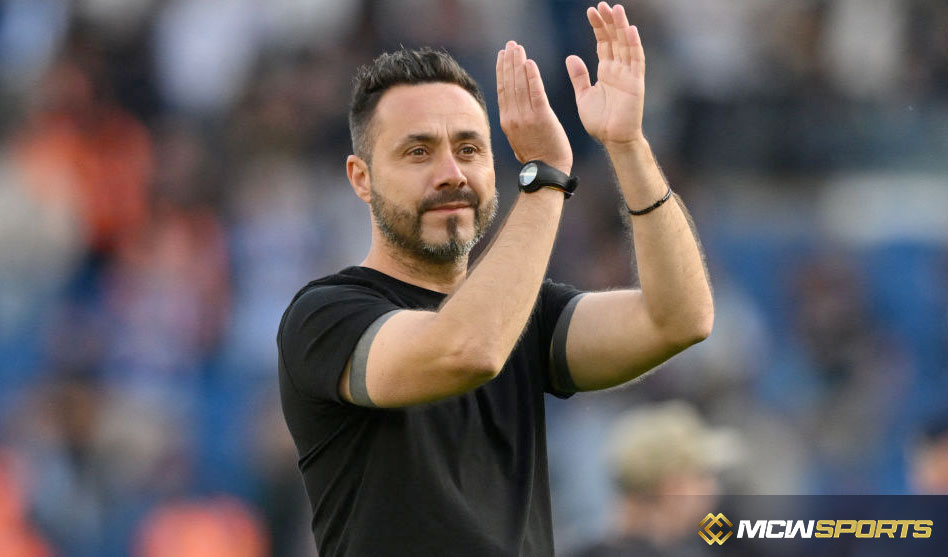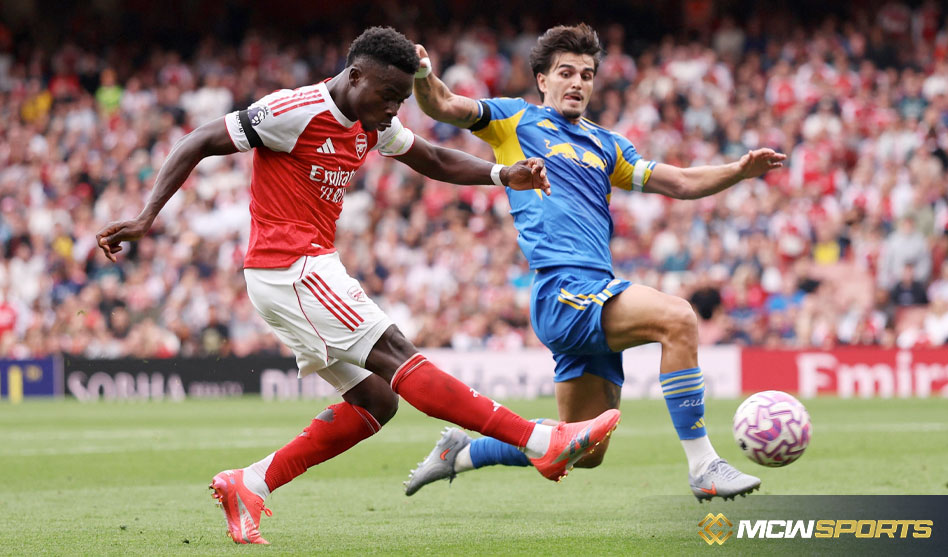LONDON, England – Roberto De Zerbi, manager of Brighton & Hove Albion, showed his extreme frustration following a tense 1-1 draw with Fulham in a home game. The Seagulls can thank Evan Ferguson for giving them the lead early on, but a tenacious Fulham team, captained by Joao Palhinha, was able to draw even halfway through the second half.
De Zerbi made no excuses during the post-game press conference when he voiced his displeasure with the outcome. He thought his players played exceptionally well, especially in light of their recent efforts in a taxing Europa League match against Ajax, which they won 2-0. The manager praised the Seagulls’ opening period, pointing out that they had numerous opportunities to widen their lead.
He was angry by the way Fulham had gotten back into the game in the second half, but he tried to hide it. De Zerbi emphasized that after giving up a goal, the Seagulls lost composure and balance. He emphasized that it appeared as though Fulham was the only team on the field throughout this part of the game.
The tie with Fulham brought back memories of Brighton’s defeat by the same team against the same opponent the season before. De Zerbi bemoaned the missed opportunities as they wasted two crucial points in a game they had hoped to win this season. He emphasized the team’s general dissatisfaction with the result in his final remarks.
Strong statements spoken by Roberto De Zerbi following the game reflected the emotional rollercoaster experienced by professional football managers. Let’s examine the game in more detail and the elements that may have contributed to his clear displeasure.
Match Dynamics between Brighton and Fulham
The game was a fiercely contested duel between two sides that had experienced divergent fortunes in previous seasons. After recently defeating Ajax in the Europa League, Brighton was feeling confident going into their match against Fulham at home.
In the first half, it was clear that the Seagulls were on the right track. Brighton’s much-needed lead was given to them by Evan Ferguson’s strike, which gave them a strong platform. Their performance in the first 45 minutes was outstanding, characterized by superb cooperation and lots of scoring possibilities. De Zerbi believed that his squad had more opportunities to profit during this time.
Football, though, frequently consists of two halves, and the second half can bring about a substantial shift in the game’s dynamics. Brighton dominated the first half, but they were unable to maintain their lead in the second. Joao Palhinha’s equalizer for Fulham served as a prime example of this turn of events. The turning points in the game, according to De Zerbi, were this defensive lapse and the ensuing loss of equilibrium.
The Strategic Method
The tactical elements of the game may have added to De Zerbi’s displeasure. Brighton was probably trying to secure the victory after taking the lead by playing strong defense while keeping the option to counterattack. However, they failed in this area, allowing Fulham to take advantage of their defensive flaws and square the score.
De Zerbi may have highlighted the distances lost as a result, which suggests a breakdown in the defensive structure. Unmaintained defensive lines can leave a team vulnerable to swift and potent attacks from the opposition. In this instance, Fulham pounced on the chance and profited from the brief lapse.
The manager’s annoyance may have been increased by the fact that Fulham had experienced a similar result the season before. Every match is typically weighed down by the weight of expectations and past performances for football managers, especially when they are playing a team they have previously had trouble beating.
A Mental Resilience Test
De Zerbi’s remarks provided additional insight into the psychological side of football. Teams that perform at the top level frequently struggle with controlling their emotions and remaining cool under pressure. It is evident that Brighton had great expectations for the game, and both the manager and the team were emotionally affected by the unanticipated draw.
Neither managers nor players are exempt from this challenge; it is not specific to Brighton. A successful football season depends on the team’s ability to bounce back from such defeats, focus on upcoming games, and retain mental toughness.

 English
English










